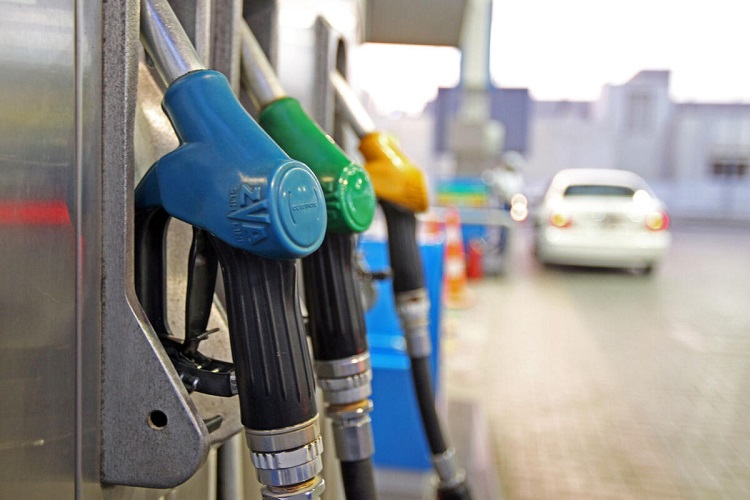The everyday life of residents of the UAE, business operations and the overall economy are influenced by petrol prices in the country. While discussing August 2024 fuel rates it is essential to know how they respond to market trends, which parameters affect them and their general effects. In this article, an examination of petrol prices in the UAE for August 2024 includes current figures, what drives up such costs as well as how customers and enterprises stand to benefit or lose from it.
August 2024 Gasoline Price Information
In August 2024, gasoline price dynamics in the United Arabian Emirates changed significantly, as it reflected global market trends and internal tendencies. The Fuel Price Committee, which sets monthly fuel charges, announced the following prices for different types of petrol:
- Super 98: AED 3.10 per liter
- Special 95: AED 2.95 per liter
- E-Plus 91: AED 2.85 per liter
- Diesel: AED 3.00 per liter
These amounts show moderate increase from last month observed due to some factors that have shaped oil markets around the world and locally too.

Dynamics of the Global Oil Market
Crude Oil Prices
Among the primary causes of gasoline price increase in August 2024 is escalation in global crude oil prices. Throughout June, ongoing regional conflicts in several major oil producing regions pushed up crude oil prices. These occurred concurrently with supply restrictions from OPEC+ countries and increased world demand as economies continued to reopen following the coronavirus pandemic. In June, Brent crude, a key benchmark for global oil prices, averaged $85 per barrel, up from May’s $80 per barrel.
Geopolitical Factors
Other geopolitical events in major oil producing areas such as Middle East and North Africa are also responsible for the volatility of petroleum markets. In August 2024, these regions saw conflicts erupting, which spilled over into oil production leading to concerns about shortages in supplies. These risks have historically had a significant impact on crude oil prices; their influence continues to shape fuel costs within UAE.
The Petrol Prices and Domestic Factors
Policies by the Government
The UAE government is vital in deciding the price of petrol through its regulatory framework, pricing mechanism. The United Arab Emirates has aligned domestic petrol prices to global oil prices since 2015 when fuel prices were deregulated with monthly adjustments made by Fuel Price Committee. This concept seeks to achieve a situation where petroleum prices are based on the market environment and therefore promote energy efficiency and conservation.
Exchange Rates of Currencies
In AME currency exchange rates also have an effect on petrol prices in the UAE. Since crude oil is traded in US dollars globally, changes in foreign exchange rate between the dollar and dirham can affect imported oil costs. A slight decline in the value of dirham against dollar in August 2024 led to higher petrol prices because it raised cost of buying crude oil internationally.
Effect on Consumers
Household Budgets
The increase in gas prices in August 2024 will directly affect household budgets. When fuel costs are high, transport expenses also go up especially for those who use their cars daily. Household budgets may well be stretched, particularly for middle and lower-income families, which might necessitate revising the spending plan to accommodate the higher fuel expenses.
Cost of Living
Furthermore, increased petrol prices also have an impact on the cost of living in UAE at large. The costs of transportation affect the prices of products and services since firms transfer extra costs brought about by expensive oil to shoppers. As a result, grocery bills can rise along with utilities and other basic items that residents purchase thereby affecting their ability to buy goods and possibly leading to inflationary pressures across our economy.

Implication on the Businesses
Transportation and Carriage
The rise in petrol prices can have a big influence on operating costs of businesses especially those in transportation and logistics. Higher fuel expenses can be faced by companies which use groups of vehicles for transport of goods and services thus affecting their profit margins. Therefore, these businesses may need to encourage fuel-efficient operations, improve delivery routes or increase prices for customers as a way of covering such extra costs.
Business Entities
Commercial entities such as manufacturing firms, service industries and retail businesses are equally impacted by high fuel prices. Consequently, this will lead to high costs in terms of raw materials and goods hence affecting production costs and the overall profitability of the business. Businesses can apply multiple strategies including reviewing their pricing policies, seeking ways to cut down on expenses or enhancing efficiency in order to deal with difficulties linked to high gas prices.
Environmental Concerns
Energy Conservation
If the cost of petrol increases, it is a way to encourage customers and organizations to embrace more energy-saving practices or apply new technologies. Because of expensive fuel prices, people tend to use fuel-efficient automobiles, practice car-pooling and public transportation leading to cut total fuel consumption and emissions of greenhouse gases. However, firms may start investing in green logistics infrastructure as well as search for new forms of energy, which can reduce the impact of skyrocketing gasoline prices.
Renewable Energy
Moreover, the consistent increase in petrol prices indicates that there is a need for adoption of renewable energy sources. UAE has taken major steps towards encouraging renewables like solar and wind power projects. Also, rising fuel prices show that more investments should be made into green infrastructures lessening reliance on fossil fuels thereby enhancing energy safety.
Future Outlook
Market Projections
In future, the gasoline prices in United Arab Emirates will be influenced by global market trends, geopolitical events and domestic policy decisions. Besides, crude oil prices are expected to remain unpredictable for some time due to ongoing geopolitical issues, changes in demand worldwide as well as factors affecting supply. Therefore, these aspects have to be examined closely in order to forecast any variations in petrol rates and make necessary preparations for this.
Interventions by the Government
The UAE government’s attempts to establish some sort of compromise between low-cost fuels and objectives on energy efficiency, which also ensure that the environment is sustainable, are expected to continue. Hence, other factors behind costs of petrol would be policies directing towards boosting renewable energy generating capacity in the next years. Moreover, long-term energy security and economic resilience can be achieved through continued infrastructure and technology investments.
Global and domestic variables that influence petrol prices in UAE during August 2024, comprise of the crude oil prices, currency exchange rates, geopolitical events and government policies. The resultant rise in petrol prices has far-reaching effects on consumers, firms as well as the larger economy through their impact on household budgets, transportation costs and overall cost of living. In order to maintain economic stability and environmental sustainability while contending with fluctuating fuel costs; therefore, energy efficiency, renewable energy sources and sustainable practices should be given priority by UAE. To enable stakeholders deal effectively with petroleum price variations and make informed choices for tomorrow they need to know this information at all times.
